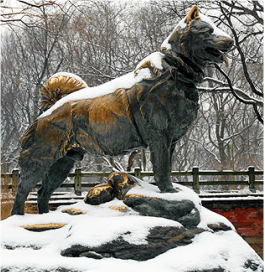Professor Silvana Patriarca is a faculty member in the Fordham University History department and specializes in modern Italian history. She is currently exploring the interaction between ideas of nation and “race” and working on a book about the history of racism in post-World War II Italy. Her new book will focus on “mixed-race” children born in Italy during the Allied occupation. These children were born to Italian mothers and non-white Allied soldiers, and were highly racialized in the post-war period.
Dr. Patriarca had initially started her research with a different topic in mind, but became interested in the post-war period when she discovered a lack of scholarship about race and racism in Italy after 1945. She began to focus on the experiences of mix-raced Italian children when she came across a 1961 Italian anthropometric study of a group of mixed-race children born during and right after WWII. The children had been measured in all sorts of invasive way to determine the physical, intellectual, and psychological traits that distinguished them, as if they were a group apart from a racial standpoint. “I found the book offensive and asked myself what do we know about the experiences of these children? I wondered what happened to them at that time and after [these studies were finished]?” Dr. Patriarca said. She saw these racial studies as linked to the large issue of Italian identity, the war experience, and the trauma of defeat. Fascist and racist ideas still circulated throughout Italy after World War II and permeated the scientific community especially. “Of course mentalities are slow to change,” Dr. Patriarca explained “It was troubling that many historians could still not see the intersection of nation and race in the postwar period and the lingering effects of fascism and racism on national identity.”
Dr. Patriarca has been working on and off this project for three years now, and took a full year away from Fordham University to conduct research in Italy. While there is very little secondary scholarship regarding this issue, there is no shortage of primary sources. Dr. Patriarca has found a plethora of diverse sources to work with including cinema, newspapers, scientific literature, and psychological studies. Along with these sources Dr. Patriarca is also using oral history in her new book. Although she has used oral histories in previous publications, she said interviewing people who have been racially stigmatized has been a challenging “learning experience.” Dr. Patriarca explained that collecting the stories of people who have experienced indignities, who have been discriminated against and racialized has been difficult and “emotionally intense,” but also rewarding from a human standpoint.
She intends to incorporate these interviews in the form of a dialogue. She explained she sees herself more as an “interview partner” than a formal interviewer. While the book focuses on the experiences and stories of these mixed-race individuals, it is at the same time a story that sheds light on the identity formation of contemporary Italians and thus involves her personally. To that point, she hopes to write a book that will be accessible to a larger audience while still being academically rigorous. Dr. Patriarca said, “Historians should be encouraged to be more present in the public debate.”
You can read the first results of her research in her recently published article “Fear of Small Numbers: ‘Brown Babies’ in Postwar Italy,” Contemporanea. Rivista di storia dell’800 e del ‘900 18:4 (Oct-Dec.2015). If you’re interested in finding more about Dr. Patriarca’s previous work be sure to read her book: Italian Vices. Nation and Character from the Risorgimento to the Republic (Cambridge University Press, 2010); Ital. transl.: Italianità. La costruzione del carattere nazionale (Laterza, 2010)






